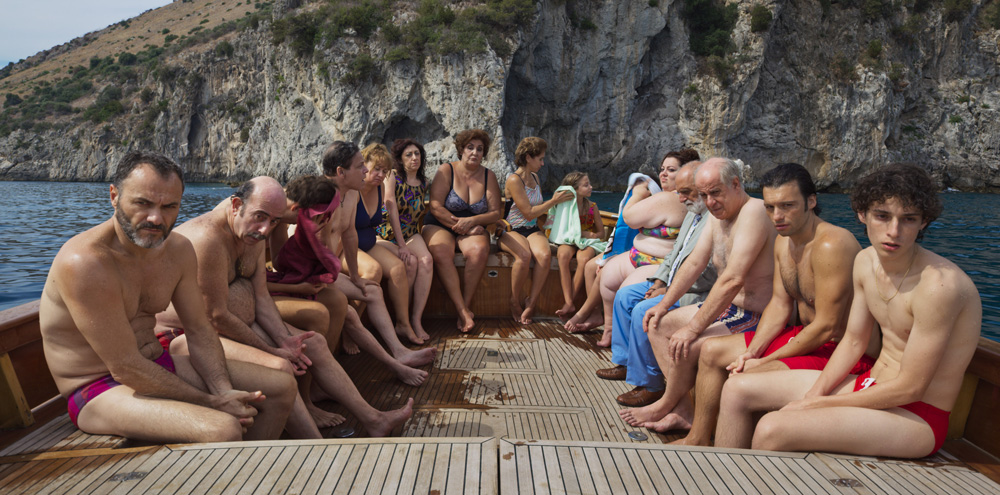“Don’t thank God, I’m the one that bought you the season ticket,” Saverio Schisa (Toni Servillo) tells his son Fabietto (Fillippo Scotti) in “The Hand of God,” after giving his son a birthday gift he won’t forget. It isn’t the first time, nor the last, that someone questions divine intervention in Paulo Sorrentino’s moving semi-autobiographical drama, as Fabietto’s prayers of seeing his beloved Napoli soccer team in action are answered by his father after the team miraculously acquires the greatest player in the world in Diego Maradona in 1987, and for the teenager who naturally thanks the heavens above for such good fortune, he probably should show a little more appreciation for what’s right in front of him. But as Sorrentino employs Fabietto to speak to a formative personal tragedy, the question for a young man who is deciding who to worship in life, whether it be God, his father, Maradona or someone or something else entirely becomes a most provocative one.
Given the inspiration behind it, “The Hand of God” may at once be Sorrentino’s most accessible work in its sincerity and at the same time and the one that may benefit most from being familiar with his filmography, elegantly showing how one of the world’s most distinctive filmmakers found their voice. Although there’s no mistaking that you’re watching the latest film from the director of “El Divo” and “Youth” from its surreal opening prologue, the film warmly invites audiences into meet the Schisas in the style of the broad, bawdy humor of the Italian comedies from Pietro Germi and Mario Monicelli that the director no doubt grew up watching, positioning everyone in Fabietto’s family as a character worthy of their own film.
His mother Maria (Teresa Saponangelo) juggles oranges for entertainment and has created with her husband a habit of whistling to let the other know when they’re around, even when they’re apart as they attend a big family gathering complete with the estranged aunt Signore Gentile (Dora Romano), who eats balls of Mozzarella the way most eat apples off in the distance, and the arrival of an interloper in Aldo (Alessandro Bressanello), a retired officer who has come as the date of the family’s notoriously unmarried Graziella (Birtie Berg), and can only speak with the assistance of an electrical voice box. Fabietto is drawn to his uncle’s wife Patrizia (Luisa Ranieri), surely in part because of his hormones and she is known to sunbathe in the nude, but more substantively as the real outlier in the family, frustrated by her inability to conceive and seen as increasingly unhinged by the rest of the clan, but only showing compassion towards him when it’s hard to come by from anyone else.
As much as it feels as if the gods have smiled upon Fabietto when his favorite player in the world is lured to Naples and better yet, he has the tickets to see him in action, Sorrentino inventively interrogates how his perspective starts to change when fate intervenes in a far less fortunate way, with “The Hand of God” never entirely removing itself from nostalgia, but spiking it with the strikingly deviant – and often breathtaking – scenes that are most memorable about its director’s work today. While telling a personal story clearly gives the film a heartfelt quality that Sorrentino’s pointed satires typically lack, what separates it from most cinematic memoirs or coming-of-age stories more generally is how the filmmaker is able to bend the world he creates at the start of “The Hand of God” into something more akin to how he sees it now. As aesthetically impressive as “The Hand of God” is in this regard, with color incrementally drained out from the film’s early scenes with the family and Sorrentino’s predilection towards exposing the architectural trappings of his characters, the film also benefits from touching performances throughout, particularly Scotti as Fillipo, as well as Servillo and Saponangelo as his parents, as you can feel how deeply the world makes an impression on him and by the end, it hardly seems as if it’s only his vision that’s been altered dramatically.
“The Hand of God” will start streaming on Netflix on December 15th.




